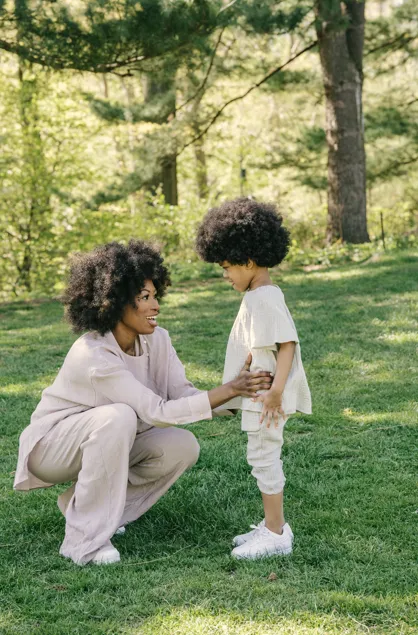
What to do and don’t when your child says something mean to someone
July 24, 2022It’s inevitable. At some point, your child is going to say something mean to another child. And as a parent, it can be tough to know how to respond. Do you discipline your child? Do you try to talk to them about why what they did was wrong? Or do you do nothing? If you’re struggling to figure out what to do, here are a few things you definitely should NOT do.
It’s inevitable. At some point, your child is going to say something hurtful to someone else. Maybe they’ll say it in the heat of the moment, or maybe they’ll say it intentionally. Whatever the case, it’s important to address the situation immediately.
20 things to do if your child says something hurtful to someone else:
1. Acknowledge what happened.
The first step is to simply acknowledge what happened. This shows your child that you’re aware of the situation and that you’re taking it seriously.
2. Talk to your child about why what they did was hurtful.
It’s important to talk to your child about why what they did was hurtful. Help them to understand how their words or actions made the other person feel.
3. Apologize to the person your child hurt.
If possible, have your child apologize to the person they hurt. This can go a long way in healing any hurt feelings.
4. Help your child come up with a plan to make things right.
If your child is old enough, help them come up with a plan to make things right. This might involve apologizing, making amends, or simply spending time with the person they hurt.
5. Encourage your child to express their feelings.
It’s normal for children to feel upset after hurting someone else. Encourage your child to express their feelings in a healthy way, such as through writing, drawing, or talking.
6. Teach your child how to problem-solve.
If your child is having difficulty controlling their hurtful behavior, teach them how to problem-solve. This can help them to find more constructive ways to deal with their feelings.
7. Seek professional help if needed.
If you’re concerned about your child’s hurtful behavior, seek professional help. A therapist can help your child to understand and manage their emotions in a healthy way.
8. Model empathy and compassion.
One of the best ways to teach your child about empathy and compassion is to model these qualities yourself. Show them how to be kind and understanding towards others, even when they make mistakes.
9. Teach your child about feelings.
Many children act out because they don’t understand their emotions. Teach your child about different feelings and how to deal with them in a healthy way.
10. Encourage your child to express themselves in positive ways.
There are many positive ways for children to express themselves, such as through art, music, or writing. Encourage your child to explore these outlets as a way to express their emotions.
11. Help your child to develop a support system.
A support system can be incredibly helpful for children who are struggling with hurtful behavior. This might include close friends, family members, or a therapist.
12. Promote positive self-talk.
One way to help your child deal with hurtful behavior is to promote positive self-talk. This means encouraging them to speak kindly to themselves, even when they make mistakes.
13. Help your child to understand that everyone makes mistakes.
It’s important for children to understand that everyone makes mistakes. This can help them to feel more forgiving towards themselves and others.
14. Encourage your child to be assertive.
Assertiveness is a healthy way to express emotions. Teach your child how to be assertive in a respectful way.
15. Teach your child how to set boundaries.
It’s important for children to learn how to set boundaries. This means knowing when to say “no” to someone, even if they’re not being hurtful.
16. Promote healthy coping skills.
There are many healthy coping skills that children can learn, such as deep breathing, journaling, or exercise. Promote these activities as a way for your child to deal with their emotions.
17. Help your child to understand that their hurtful behavior is not acceptable.
It’s important for children to understand that their hurtful behavior is not acceptable. This means having clear rules and consequences for this type of behavior.
18. Encourage your child to take responsibility for their actions.
Taking responsibility for one’s actions is an important life skill. Help your child to understand that they are responsible for their hurtful behavior and the consequences that come with it.
19. Help your child to develop empathy.
Empathy is the ability to understand and share the feelings of another person. This is a crucial skill for children to learn, as it can prevent them from hurting others in the future.
20. Seek professional help if needed.
If you’re concerned about your child’s hurtful behaviour, seek professional help. A therapist can help your child to understand and manage their emotions in a healthy way. How to get your child to open up
If you’re not sure how to respond to your child’s mean words, try talking to their teacher, a trusted family member, or a mental health professional for guidance.
It can be difficult to get your child to open up. They may be shy, or they may not want to talk about certain things. However, it’s important to try to get them to open up, so that you can understand what’s going on in their life.
tips to help you get your child to open up:
1. Talk to them regularly. Make sure to set aside some time each day to talk to your child. This will help them feel comfortable talking to you.
2. Listen to them. When your child does open up, make sure to listen to what they’re saying. Don’t interrupt or judge them. Just listen.
3. Be patient. It may take some time for your child to open up. Don’t push them. Just let them know that you’re there for them when they’re ready to talk.
4. Seek professional help. If you’re really struggling to get your child to open up, you may want to seek professional help. A therapist can help your child feel more comfortable talking about difficult topics.
If you follow these tips, you should be able to get your child to open up. Just be patient and understanding, and they’ll eventually come to you.
If your child says something hurtful to someone else, it is important to talk to your child about why what they said was hurtful. You can also help your child apologize to the person they hurt. Finally, it is important to talk to your child about how to avoid saying hurtful things in the future.









